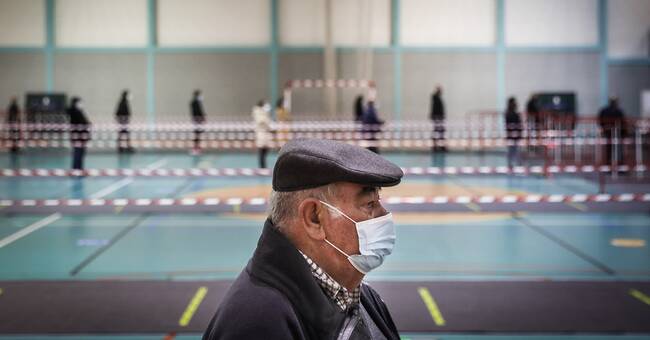This year's presidential election in Portugal will be different, to say the least.
For ten days, the country has been shut down to curb the spread of infection, which is the highest since the beginning of the pandemic.
On Wednesday, more than 14,600 new cases of infection were reported, the highest number since the beginning of the pandemic.
The country with about 10 million inhabitants has since the New Year had over 10,000 new cases of infection per day, well above Sweden's levels.
Risk of low turnout
Due to the circumstances, turnout is expected to be lower than usual, which could also threaten incumbent President Marcelo Rebelo de Sousa's expected major victory.
Or at least force a second round of elections.
- If 70 percent do not vote, a second round is almost inevitable, Rebelo de Sousa admits.
Bring your own pen
To reduce the spread of infection, hundreds of thousands of gloves, masks and visors have been distributed to each polling station.
Voters must wear masks in polling stations and disinfect their hands before and after they vote.
In addition, you must bring your own pen to tick your candidate.
Probable win for incumbent president
It has been a turbulent year for the Portuguese government and voters' dissatisfaction with the government's handling of the pandemic could have an impact on today's presidential election.
The country's Socialist Prime Minister António Costa is a close ally of Rebelo de Sousa and the risk of voter dissatisfaction with the Prime Minister is contagious to the President.
In the end, however, most indications are that the popular 72-year-old will be re-elected.
Opinion polls give Rebelo de Sousa 58 percent of the vote, compared to 15 percent for left-wing challenger Ana Gomes and 10 percent for André Ventura of right-wing populist Chega.

